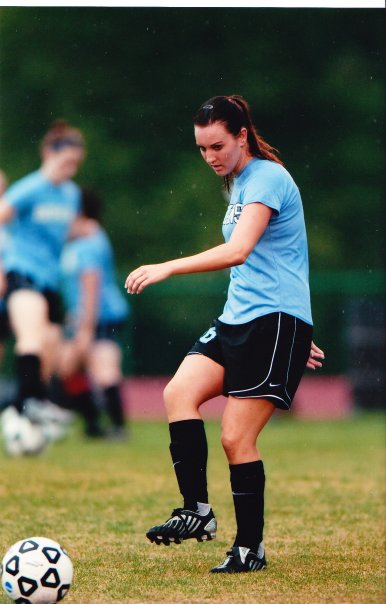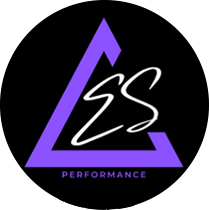
13 Oct A New Perspective on Dealing with Performance Anxiety
Mental health is a touchy subject.
Especially when it comes to sport performance, there is a stigma around speaking out about anxiety and the stressors of being an athlete.
You’re supposed to be the tough one. The resilient one. The gracious one. The strong one. But alas, the amount of duress an athlete experiences during their career is immense.
There’s more pressure.
There’s distraction.
There’s higher stakes.
There’s comparison.
There’s haters.
There’s more distraction.
There’s tougher competition.
There’s your own worst enemy: your mind.

If you’re an athlete, chances are, you’ve experienced some degree of performance anxiety.
Perhaps you’ve swirled into a deep abyss of negative thoughts, overanalyzing your every move.
Perhaps you’ve suffered a churning feeling in your gut before a championship game.
Perhaps you’ve been unable to fall asleep at night worrying about your athletic future and whether or not you’re going to achieve your goals.
Perhaps you’ve had a panic attack at the thought of your coach berating you for a mistake.
Perhaps you’ve had to pee your pants ten times before kick-off.
Perhaps you’ve questioned if any of this is worth it.
Performance anxiety downright sucks.
It has its way of making even the strongest suffer self doubt.
And you may wonder, why cheering yourself on with positive affirmations, or meditating, or journaling your emotions haven’t worked.

Taking the conversation back to mental health, it is a touchy subject, and what works for others may not work for you. And for more serious cases, professional help is the best option.
This article is meant for athletes who suffer the nerves and the traumas I listed above – fear of making a mistake, fear of not “making it” in their careers, fear of not playing to their coach’s standards, fear of not scoring, fear of not winning a championship game.
So what can you do first?
I know this may sound unconventional and offbeat, but get excited about performance anxiety.

And use the energy from it to dial in your focus further.
This is more of a perspective shift than anything: instead of playing the victim and blurting to the world, “I’m anxious for this game! This needs to stop!” affirm, “I’m excited for this game.”
Because, sometimes, the more we fight the nerves and use every ounce of our energy to squash them, we end up losing more energy and exuberance.
Let the anxiety move through you. Let it linger. Let the nerves sit. And say, “I welcome this anxiety to give me the strength to get pumped up for this game.”
It’s time for a perspective shift, ya’ll. Of course, serious cases of anxiety can be uncontrollable, but with pre-game nerves, we can use the butterflies to rise to the occasion and fly high.
So acknowledge anxiety.
Say, ‘yes’ to it.
Use is it as excitement.
See it in a different lens.
Even the tiniest perspective shift from anxiety’s negative connotation to a positive one puts you back in control as an athlete.
And moving into acceptance is a great start. On days when you feel more anxious, joke to yourself, “well, this is going to be A DAY,” and communicate it with others, too.
Full disclosure: this is what has worked for my athletes and myself over the years, and I am sharing it as an alternative to other means that have not worked for you in the past.
To provide you with a few more tips to alleviate performance anxiety, give these a whirl:
- Get off social media: the more we are stimulated from our phones and glowing devices, the more we train our brains to also be stimulated. All. The. Time. So get off Instagram, stop scrolling, and sit with your amazing self.
- Speak openly about anxiety: there’s a stigma around talking to your loved ones about your anxiety, but your support system is everything. Your friends are there to remind you that you are not a failure, you are not broken, and you are an amazing human being.
- Find other passions beyond your sport: Your primary sport has its way of giving you your identity, so when you mess up, your entire world comes crumbling down. It’s who you are, so when one thing goes wrong, your ego is shattered. So I urge you to find other passions that you don’t go all in when it comes to your self worth. Do you like art? Do you create music? Do you write? Do you do photography? Lean into those hobbies as an escape from the high stakes of your sport.
- Seek out role models who also struggle: It’s refreshing to hear that your favorite celebrities, athletes and role models are going through the same. It serves as an excellent reminder of the human condition, and we are all struggling with the same battles. Find a role model who suffers from anxiety and see if you can be inspired from their story. For me, here is a powerful interview from Logic, my favorite rapper, that spoke to me:
If you watched the above video, I hope it resonated. Truthfully, it impacted my life as a high performer and taught me that anxiety can’t physically harm me. It just is there.
And with any high performer who is passionate about their craft, it’s better to accept the feeling of anxiety and use it as excitement for projects, then expending precious energy fighting it.
I hope this article provided a glimmer of hope as well as a new perspective when dealing with performance anxiety.
You are not alone.


Shane K McLean
Posted at 00:28h, 15 OctoberWow great stud=ff coach. I really love the new look website
erica
Posted at 13:41h, 15 OctoberThank you!
Carsen Delmont
Posted at 12:56h, 15 OctoberErica I love you! This article has helped me so much. I wish I read this 10 years ago. Thank you for sharing your perspective.
erica
Posted at 13:41h, 15 OctoberGlad it helped!!! 🙂